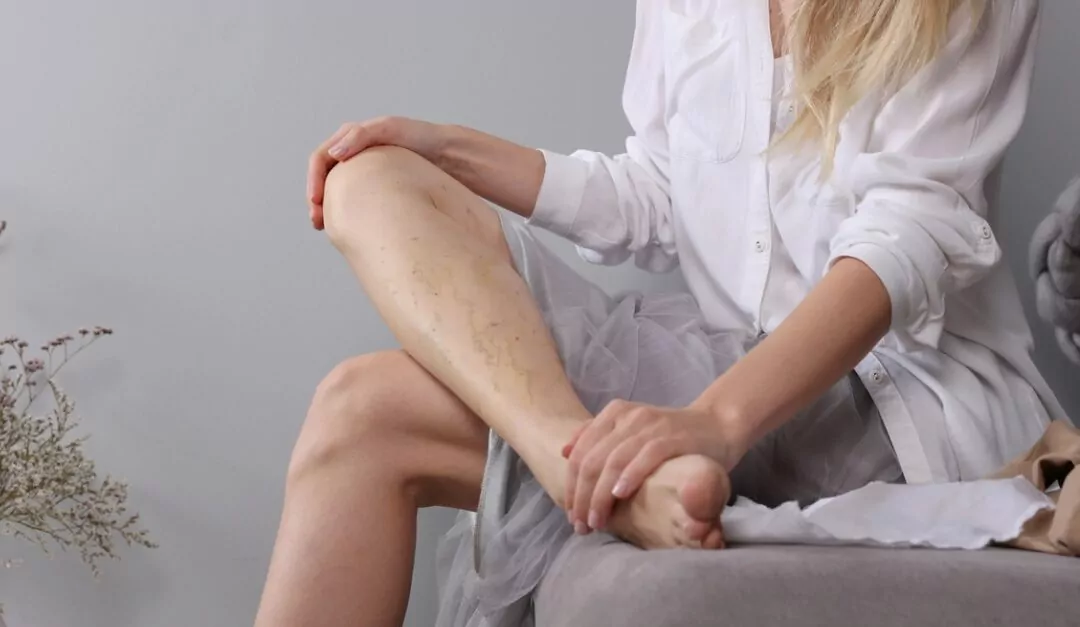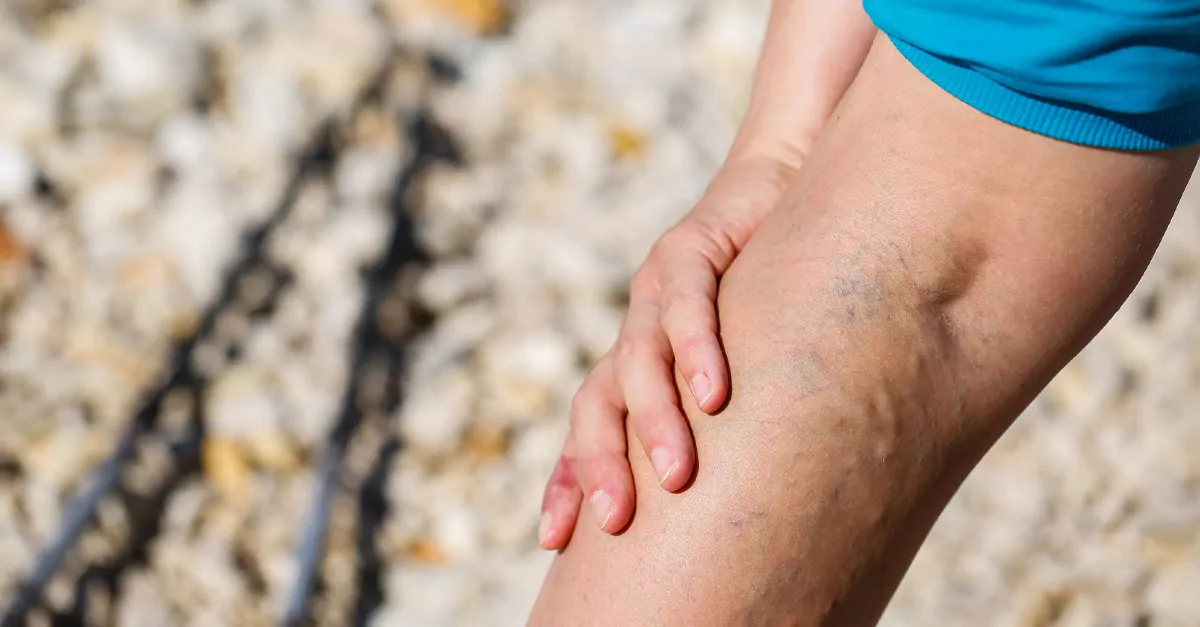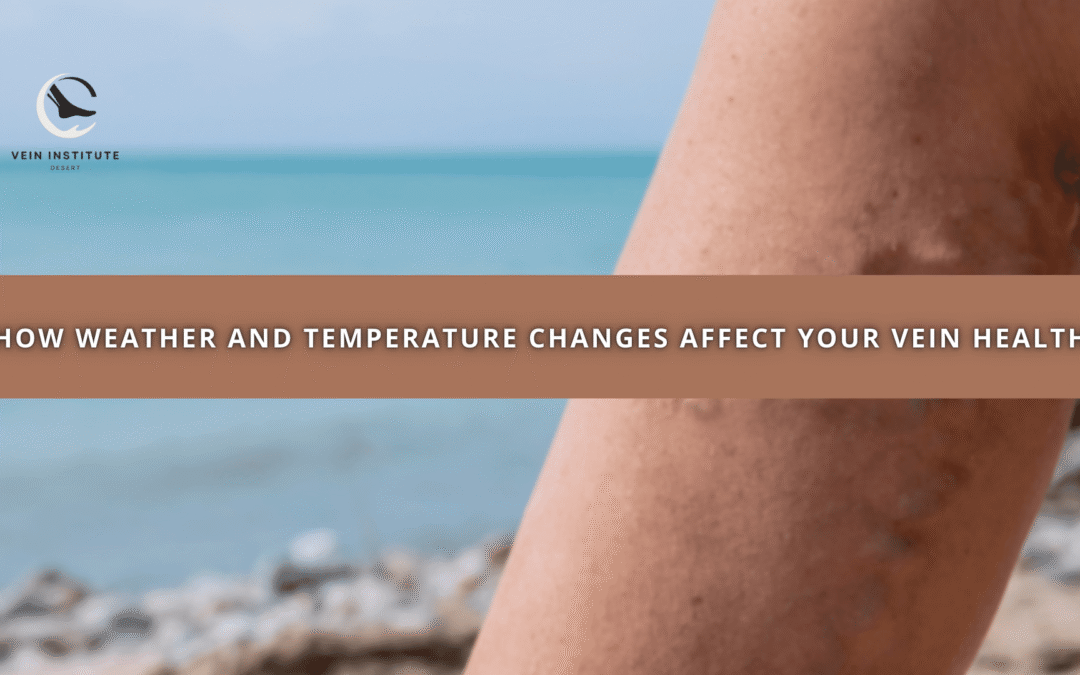How Weather Changes Affect Your Vein Health 🌡️

As the seasons shift, so do the conditions affecting your veins. Whether it’s the scorching heat of summer or the chilly winds of winter, extreme weather plays a significant role in your vein health.
The Impact of Hot Weather on Your Vein Health ☀️

During the summer months, hot weather can cause your veins to expand, leading to a process known as dilation. As the temperature rises, blood flow slows down and becomes more viscous. This means the heart has to work harder to pump blood through the veins, particularly in the lower limbs.
For individuals already dealing with vein issues, this can lead to symptoms like:
-
Heaviness in the legs
-
Swelling
-
Visible or worsened varicose veins
-
Discomfort during daily activities
Tips for Hot Weather Vein Care:
-
💧 Stay hydrated: Drink plenty of water to help maintain optimal blood flow.
-
🦵 Uplift your legs: When sitting, elevate your legs to help improve circulation.
-
🧦 Wear compression stockings: These support your veins and reduce swelling.
If the summer heat is worsening your vein health, seeking advice from The Vein Institute in Palm Desert could provide personalized treatment options, including viscous veins treatment that targets the underlying causes of discomfort.
How Cold Weather Affects Your Veins 🥶

On the flip side, cold weather presents its own set of challenges. When temperatures drop, the body constricts blood vessels to preserve heat, causing veins to tighten. This can lead to reduced circulation, resulting in:
-
Numbness
-
Pain in extremities
-
Worsened venous insufficiency symptoms
Cold Weather Vein Care Tips:
-
🧤 Dress warmly: Keep legs and feet covered to prevent constriction.
-
🧘 Gentle exercises: Try light warm-ups to encourage blood flow.
-
🥦 Maintain a healthy diet: Antioxidant-rich foods can improve circulation.
During colder months, treatments focused on improving circulation can help ensure your veins remain healthy despite the drop in temperature.
Managing Your Veins Year-Round 🏖️
Vein health isn’t only about reacting to seasonal changes—it’s about consistent, year-round care. Regardless of the season, incorporate the following habits into your daily routine:
-
🚶 Regular physical activity: Walking or cycling helps improve circulation and prevents blood from pooling in the veins.
-
🥗 Eat a vein-friendly diet: Include fiber, vitamin C, and bioflavonoids to support your vascular system.
Additionally, consulting with specialists at The Vein Institute can help you discover personalized solutions—from treatments to lifestyle changes tailored to your needs.
Why Professional Treatment Matters 🩺
While seasonal tips may offer temporary relief, professional care is key for long-term vein health. If you’re dealing with persistent symptoms like swelling, pain, or visible varicose veins:
-
A vein expert can provide thorough evaluations
-
You can access non-invasive to advanced treatment options
-
You’ll get a plan tailored to your condition and lifestyle
Maintaining Vein Health Year-Round 🌦️
Ultimately, vein health is a year-round commitment. Understanding how seasonal changes affect your veins allows you to take proactive steps for prevention and care. If chronic vein problems are interfering with your comfort or quality of life, seek guidance and treatment options tailored to your specific needs.
Andy Sharifi
Position
